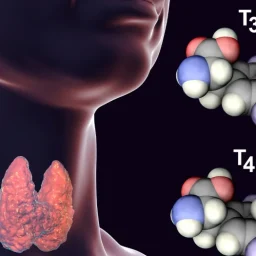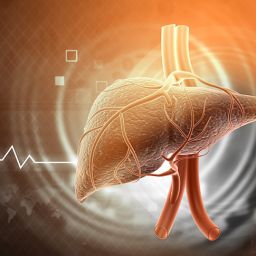
1. Pancreatic Enzyme Insufficiency
Pancreatic enzyme insufficiency occurs when the pancreas is unable to produce enough digestive enzymes to properly break down food in the small intestine. This condition can lead to a variety of digestive problems and malnutrition, as the body is unable to absorb essential nutrients from the food consumed.
The pancreas produces three main digestive enzymes:
- Amylase: Breaks down carbohydrates into simple sugars.
- Lipase: Breaks down fats into fatty acids and glycerol.
- Protease: Breaks down proteins into amino acids.
When the pancreas cannot produce enough of these enzymes, food may not be digested properly, leading to symptoms such as bloating, diarrhea, weight loss, and malnutrition. In such cases, enzyme supplements can help compensate for the lack of natural enzyme production, ensuring that food is digested and nutrients are absorbed.
2. Conditions That May Require Pancreatic Enzyme Supplements
Several medical conditions can impair the pancreas’s ability to produce sufficient digestive enzymes. These conditions may lead to the need for pancreatic enzyme supplementation.
Chronic Pancreatitis
Chronic pancreatitis is a long-term inflammation of the pancreas that can damage the organ’s ability to produce digestive enzymes. This condition is often caused by heavy alcohol consumption, gallstones, or other factors that lead to ongoing inflammation of the pancreas. As the condition progresses, it can result in pancreatic enzyme insufficiency, making enzyme supplements necessary for proper digestion.

- Symptoms: Chronic abdominal pain, diarrhea, weight loss, fatty stools (steatorrhea), and malnutrition.
Chronic pancreatitis is one of the most common conditions where pancreatic enzyme supplements are used. By providing the necessary enzymes to aid in digestion, these supplements help alleviate symptoms and improve nutrient absorption.
Cystic Fibrosis
Cystic fibrosis is a genetic disorder that causes the production of thick, sticky mucus in various organs, including the lungs and pancreas. The thick mucus can block the pancreatic ducts, preventing enzymes from reaching the small intestine. As a result, individuals with cystic fibrosis often develop pancreatic enzyme insufficiency, leading to difficulty digesting food, particularly fats.
- Symptoms: Difficulty gaining weight, oily and smelly stools, chronic cough, and respiratory problems.
Pancreatic enzyme supplements are essential for individuals with cystic fibrosis to support digestion and ensure proper absorption of nutrients. These supplements are typically taken with meals to help break down food effectively.
Pancreatic Cancer
Pancreatic cancer, particularly in its advanced stages, can interfere with the pancreas’s ability to produce digestive enzymes. The tumor may obstruct the pancreatic ducts or damage the pancreas itself, leading to enzyme insufficiency. In addition, treatments for pancreatic cancer, such as surgery, radiation, or chemotherapy, may further impair pancreatic function.
- Symptoms: Jaundice, abdominal pain, unexplained weight loss, fatigue, and digestive problems.
In patients with pancreatic cancer, enzyme supplementation is crucial to manage digestive symptoms and ensure adequate nutrition. Without sufficient digestive enzymes, individuals may experience significant malnutrition, weight loss, and digestive discomfort.
Post-Surgical Conditions
Certain surgical procedures, such as the removal of part or all of the pancreas, can result in a significant reduction in the production of digestive enzymes. This can occur in individuals who have had surgery to remove tumors, treat chronic pancreatitis, or address pancreatic trauma. Following such surgeries, patients may need pancreatic enzyme supplements to help with digestion.
- Symptoms: Poor digestion, weight loss, diarrhea, and malabsorption.
Post-surgical enzyme replacement therapy can help patients recover from surgery and manage the digestive issues that may arise due to reduced pancreatic function.
Diabetes and Pancreatic Insufficiency
In individuals with diabetes, particularly type 1 diabetes, the pancreas may no longer produce insulin, which is needed for glucose metabolism. However, in some cases, diabetes can also affect the pancreas’s ability to produce digestive enzymes, resulting in enzyme insufficiency. In these cases, pancreatic enzyme supplements may be needed to aid in digestion and improve nutrient absorption.
- Symptoms: Difficulty digesting food, bloating, weight loss, and gastrointestinal discomfort.
Diabetic individuals with pancreatic insufficiency may benefit from enzyme supplements to support their digestive health and overall well-being.
3. How Pancreatic Enzyme Supplements Work

Pancreatic enzyme supplements are available in various forms, including capsules, tablets, and powders. These supplements typically contain a combination of enzymes, including amylase, lipase, and protease, which help break down carbohydrates, fats, and proteins, respectively.
The enzymes in the supplements are usually derived from animal sources, such as pigs, but there are also plant-based enzyme supplements available. These enzymes work by replacing the natural enzymes that the pancreas can no longer produce in sufficient quantities.
- How to Take Them: Pancreatic enzyme supplements are usually taken with meals or snacks, depending on the specific instructions provided by a healthcare provider. The timing of the supplement is essential to ensure that the enzymes can act on the food being digested.
The correct dosage will vary depending on the individual’s age, weight, and specific condition. Healthcare providers typically adjust the dosage based on the severity of the enzyme insufficiency and the patient’s response to the supplement.
4. Benefits of Pancreatic Enzyme Supplements
The use of pancreatic enzyme supplements offers several key benefits for individuals with enzyme insufficiency:
- Improved Digestion: By providing the necessary enzymes to break down food, pancreatic enzyme supplements can alleviate symptoms such as bloating, indigestion, and diarrhea.
- Better Nutrient Absorption: Supplementing with pancreatic enzymes ensures that the body can absorb essential nutrients from food, including fats, proteins, and vitamins.
- Weight Management: Since pancreatic insufficiency can lead to unintentional weight loss, enzyme supplements help ensure that individuals can maintain a healthy weight by improving nutrient absorption.
- Reduced Malnutrition: By improving digestion and nutrient absorption, enzyme supplements help prevent malnutrition, a common concern for those with pancreatic insufficiency.
5. Potential Risks and Side Effects
While pancreatic enzyme supplements are generally safe when taken as prescribed, there are some potential risks and side effects to be aware of:
- Gastrointestinal Discomfort: Some individuals may experience mild stomach discomfort, nausea, or diarrhea when taking pancreatic enzyme supplements.
- Allergic Reactions: Although rare, some individuals may have an allergic reaction to the enzymes in the supplements, particularly those derived from animal sources.
- Fibrosis or Bowel Irritation: Long-term use of high doses of pancreatic enzyme supplements may irritate the bowel or lead to fibrosis, a condition characterized by the thickening of tissue in the intestines.
To minimize the risks, it is essential to follow the recommended dosage and consult a healthcare provider before starting enzyme supplementation.
6. When to Seek Medical Advice
If you suspect that you may have pancreatic enzyme insufficiency, it’s important to seek medical advice. Symptoms such as unexplained weight loss, chronic diarrhea, bloating, or fatty stools should be discussed with a healthcare provider, as they may indicate the need for pancreatic enzyme supplements. A doctor may perform tests, such as blood work or imaging studies, to diagnose the underlying cause of enzyme insufficiency and recommend appropriate treatment.
Pancreatic enzyme supplements are essential for individuals with pancreatic enzyme insufficiency, helping to improve digestion, nutrient absorption, and overall quality of life. Conditions such as chronic pancreatitis, cystic fibrosis, pancreatic cancer, post-surgical states, and diabetes may all require the use of pancreatic enzyme supplements to manage digestive symptoms and prevent malnutrition. While these supplements offer significant benefits, they should be taken under the supervision of a healthcare provider to ensure proper dosage and minimize the risk of side effects.
If you are experiencing digestive difficulties or suspect that you may have pancreatic enzyme insufficiency, consult a healthcare provider to determine if enzyme supplementation is necessary for your condition. With proper guidance, pancreatic enzyme supplements can help support digestion and enhance your overall health and well-being.















